Perpetuating the fight against climate change
You participated in the climate strike. Now what?
A climate change protester holds aloft one of the many signs protesters brought to the climate rally. Photo by Alysa Bijl-Spiro.
On the morning of Friday, Sept. 20, more than 300 students and adults gathered at the steps of the Texas State Capitol to protest climate change. The strike, which was organized by the Austin Climate Coalition, had students all over Austin walking out of their first-period classes. During the rally, many volunteer speakers took turns leading the group in peaceful chants. “I think it’s important for students to attend rallies because we don’t have any other choice for a voice. The biggest way to influence politics is through money, and students don’t have those means,” senior Elise Cook told MacJournalism. “We have to verbally demonstrate and protest; it shows politicians that we do actually care. I don’t think one protest can change the whole system, but repeated action is the best way we can make change.” Video directed by Stella Shenkman, edited by Dylan Hildebrandt.
November 4, 2019
On Sept. 20, the Texas State Capitol was on fire with the grit and determination of local students fighting for action against climate change. The rally, organized by the Austin Climate Coalition, was one of hundreds across the globe and was well-attended by McCallum students. These rallies, inspired by 16-year-old Greta Thunberg, are part of a global effort to raise awareness about the issue of climate change.
Though the illustrated posters from the rally are now recycled and the stairs to the Capitol are no longer lined with protesting students, the fight for climate change is far from over. The opportunities available to students who want to fight against climate change are abundant. For students asking “What’s next?”, here’s possible ways MAC students can get involved with perpetuating the fight against climate change.
Driving may be a right of passage for teens, but all those cars contribute to carbon emissions. Senior Riley Edwards does his part by riding his bicycle and carpooling when possible. Edwards stressed the importance of buying sustainable, fuel-efficient cars. ““Don’t buy a car that gets nine miles per gallon,” Edwards said.
Alongside reducing use of fossil fuels, environmentalists have also adopted vegetarianism and veganism because meat production has environmental costs. Sophomore Mollie King has been a vegan for almost a year.
“All of the waste produced by cows ends up in bodies of water,” King explained. Besides polluting natural resources, livestock at dairy and cattle farms produces substantial carbon emissions.
Sophomore Alba Perez is also trying to do her part for the environment. Perez reuses clothes and buys from thrift stores and sustainable clothing companies whenever possible. Perez points out that thrift shopping has a variety of positive impacts on the environment, including reduction of landfill waste.
Perez also stated that donating to reputable funds and organizations is always a great way for budding environmentalists to help the cause. “People are intimidated by how huge the problem is,” Perez said, “but the tiny things, like donating a dollar, it matters. It makes an impact.”
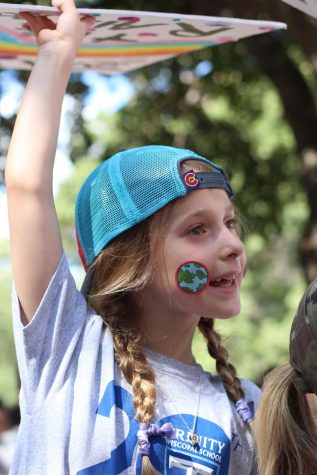
PROTECTING THE ENVIRONMENT ON CAMPUS
McCallum is jam packed with more than 1,800 students. With a number that large, creating a sustainable, environmentally friendly school is an incredible challenge, one that principal Brandi Hosack is prepared to take head-on.
“We’re really cognizant of how we use resources here,” Principal Brandi Hosack said in an interview with The Shield. “It’s the small things that reduce your footprint.” These “small things” that Hosack is referencing are present in student’s everyday lives, if they know where to look.
One of the biggest opportunities for the McCallum to reduce its carbon footprint is for the school to dramatically reduce its paper usage. Switching from paper-assignments to BLEND has a sizable impact on the amount of paper McCallum uses. Hosack calls this switch a “paper diet” because of the awareness she wants to draw to the amount of paper resources being used in the classroom.
We’re really cognizant of how we use resources here. It’s the small things that reduce your footprint.
— principal Brandi Hosack
According to Hosack, it’s not just teachers who can help McCallum reduce its paper usage. Students should pay attention to what they use and how they use it, such as paper towels in the restrooms and napkins in the cafeteria.
“Having students be aware of the resources they’re using is half the battle,” Hosack said.
But awareness is only a step in the process.
The building itself needs major updates in order for it to be environmentally friendly.
“We’re dealing with an older building, which can be really hard when you’re trying to be cost and energy efficient,” Hosack said.
Things are looking up, however, because of the bond money McCallum has been granted to replace its old, unsustainable air conditioner with a more energy efficient one.
Hosack plans on being more transparent with students and teachers about the efforts school is making. She also plans on getting a teacher to sponsor an Environmental Action club to centralize school-wide efforts towards sustainability in the near future, so keep an eye out.
GOING GREEN IN YOUR COMMUNITY
McCallum students have many opportunities to get involved in local, national and even global groups organizations fighting against climate change.
The Austin Climate Coalition, or ACC, recently gained recognition for its key role in the Austin climate strike. Sophomore Lucy Marco, one of the McCallum representatives in the coalition, describes the ACC as “a group of high school communities in Austin who are worried about the climate and want to do something to change it.”
Youth voices are always the most impactful.
— Susan Adams, Citizens' Climate Lobby
The purpose of the ACC is far larger, however, than organizing a single climate rally. The ACC attends meetings with members of Congress, participates in panels with environmental organizations and encourages students to call and write letters to their elected representatives.
“My mom, who works for the Citizens’ Climate Lobby, told me that writing a letter to your representatives is the most effective way of getting a message across,” Marco explained.
The Citizens Climate Lobbyists, or CCL, is a global organization that welcomes student participation.
Susan Adams, the regional coordinator of the CCL in Texas, Louisiana and Mississippi. She described the CCL to The Shield as a “global organization focused on enacting federal policies to address climate change.”
Adams explained how all students have the right to talk to their elected officials, adding that the CCL would be more than happy to help students set up a meeting with their representative and help them prepare and learn skills to effectively get their points across. “Youth voices are always the most impactful,” Adams said.
The CCL is working to create more opportunities for young activists to get involved, such as monthly student discussions. Through the CCL, students can participate in regional conferences in Houston and lobby days in Washington D.C. Adams hopes to bring more students to these events and is working with other members of the CCL to create discounts for students who want to participate.
“Don’t be afraid to take the first step and ask for help,” Adams said. “Call me, call anybody. There’s so many people working on stuff. Your voice is powerful. Look at Greta. There’s millions of people marching because of her. Take the first step.”




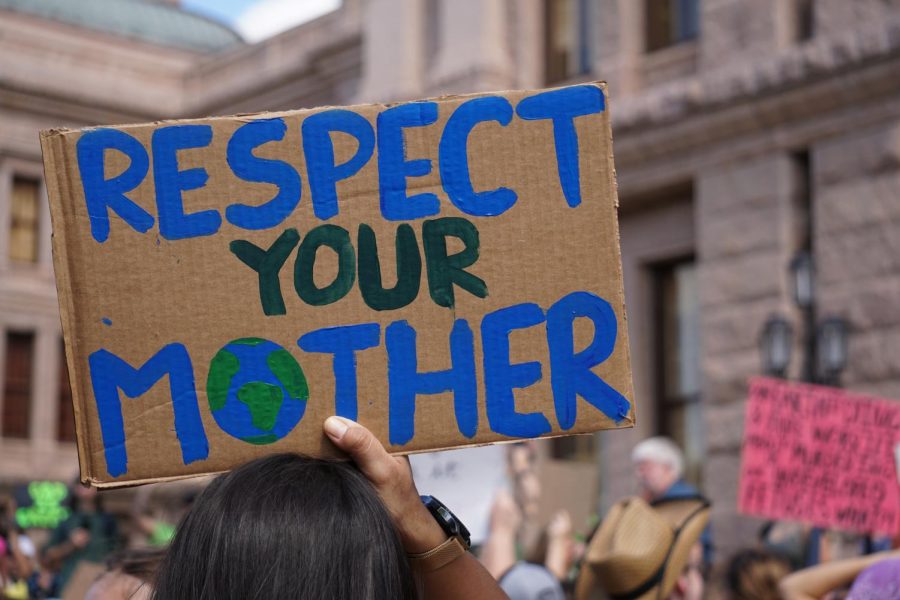
![HEAR OUR CRY: Standing before the capitol, McCallum students Ruby Henson, Abby Green, Louisa Najar and Sabri Armani participate in the rally cries at the Austin Climate Strike. “This is our climate; we are the change,” Najar said, who added that she believes that our planet and the climate crisis is a cause that unifies people all over the world. “Global climate change is universal. It affects all people. [It affects them] at different levels, but it affects everyone, no matter what.” Photo and reporting by Samantha Powers.](https://macshieldonline.com/wp-content/uploads/2019/10/2019-09-20_05-35-34-475x316.jpg)
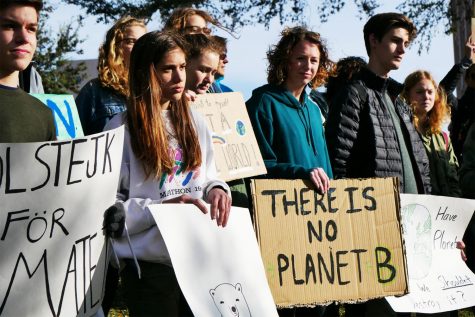
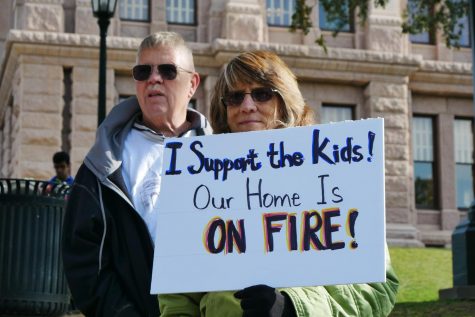
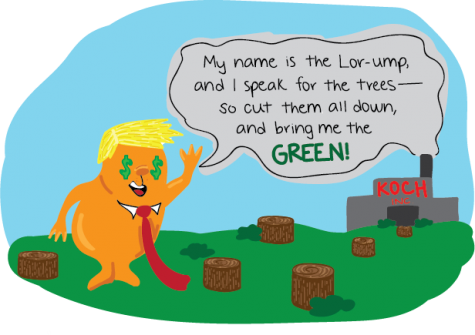
![HEAR OUR CRY: Standing before the capitol, McCallum students Ruby Henson, Abby Green, Louisa Najar and Sabri Armani participate in the rally cries at the Austin Climate Strike. “This is our climate; we are the change,” Najar said, who added that she believes that our planet and the climate crisis is a cause that unifies people all over the world. “Global climate change is universal. It affects all people. [It affects them] at different levels, but it affects everyone, no matter what.” Photo and reporting by Samantha Powers.](https://macshieldonline.com/wp-content/uploads/2019/10/2019-09-20_05-35-34-300x200.jpg)
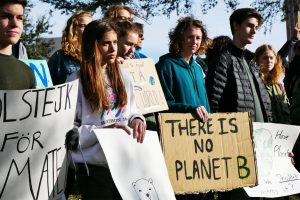
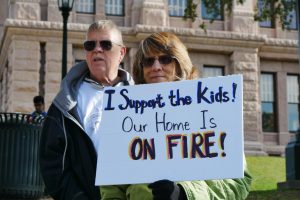
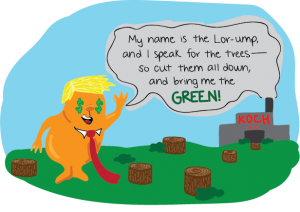

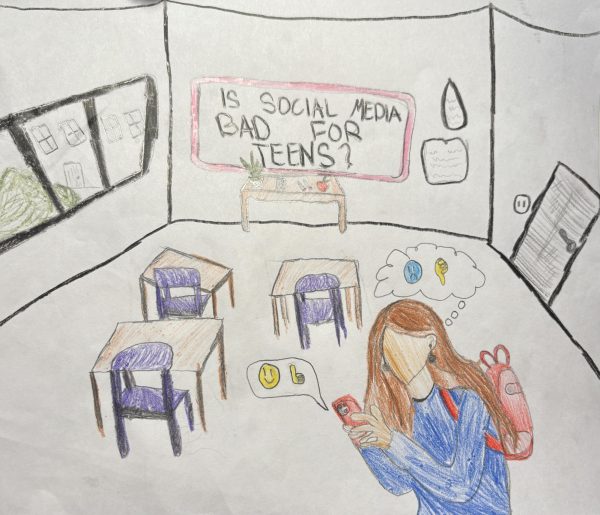



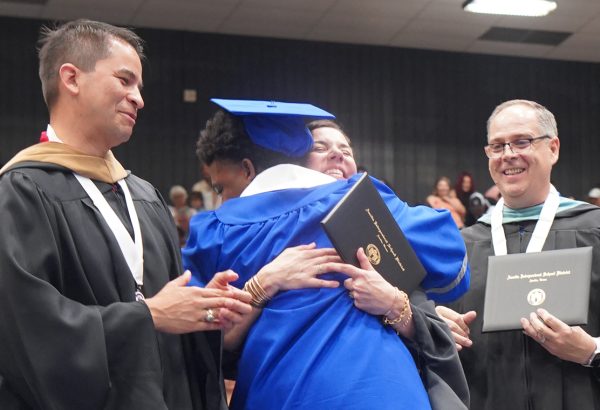
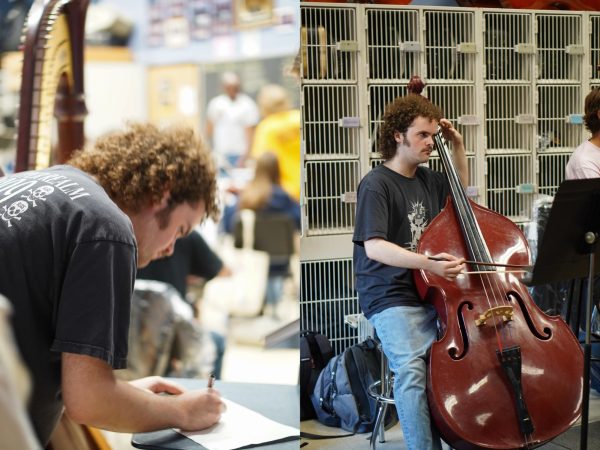

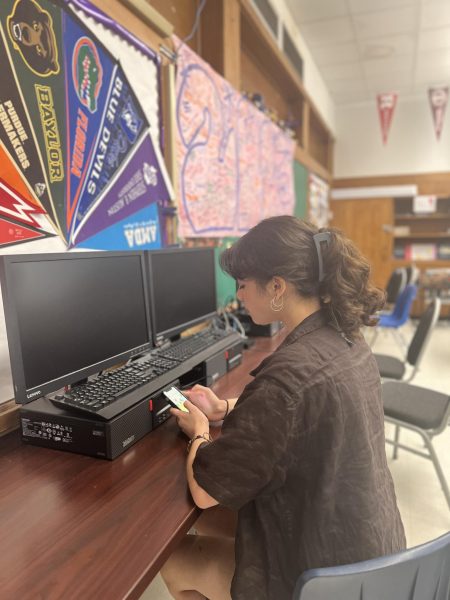
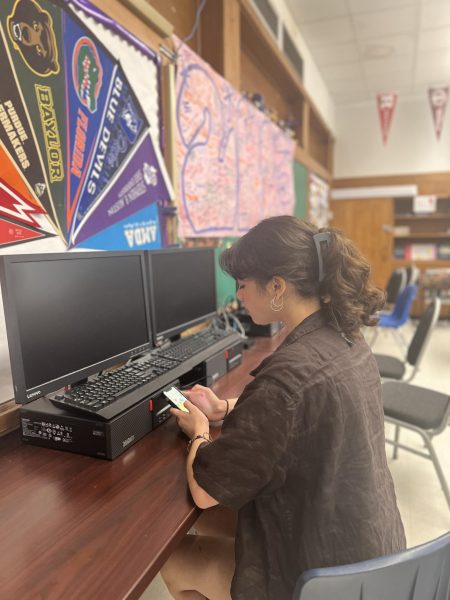
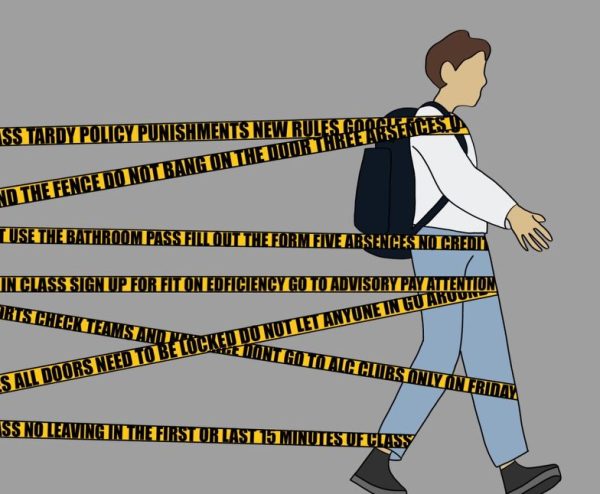

Anwen Ternay • Dec 2, 2019 at 4:01 pm
I liked this article because i love the topic first and it is one that needs to be talked about so that made me want to read it. One of the things I loved about is how it gave explanations of what the school does for the environment and what students do so it gave an idea of what we can or are doing for the world. I felt like it gave a lot of information for me to know about what happened after the strike and answered my question of what happened.
Esme Moreno • Nov 5, 2019 at 9:34 pm
I like your article because it gives good information on a very relevant topic. Not only does it state the issue at hand but it also gives examples of how to help.
Lydia Reedy • Nov 5, 2019 at 6:53 pm
I really like this article and also like that you are consistently talking about big topics like climate change. I think this article is set up very well and is also very informative.
Lily Brode • Nov 5, 2019 at 9:52 am
I think this article was very informative about how we can help our planet and make a change in the way we live our day to life. Also the quotes in this article were great along with how the whole article was organized.
Zada Cook • Nov 5, 2019 at 9:43 am
I really enjoyed this article because it touched on many different ways to help sustain the environment. I recently wrote a paper on how fast fashion harms our Earth so I really loved reading about the thrifting section of this article. Overall I gathered a lot of information on how to help sustain our environment and become more eco-friendly.
Kate Boyle • Nov 4, 2019 at 3:30 pm
I liked the follow-up article on the other articles posted this year. I liked the colors in the pictures and the quotes that were included. If possible I would love to see more pictures!